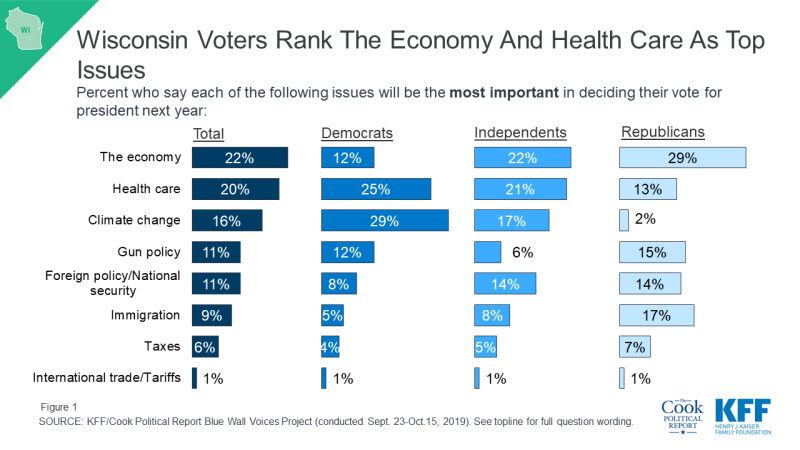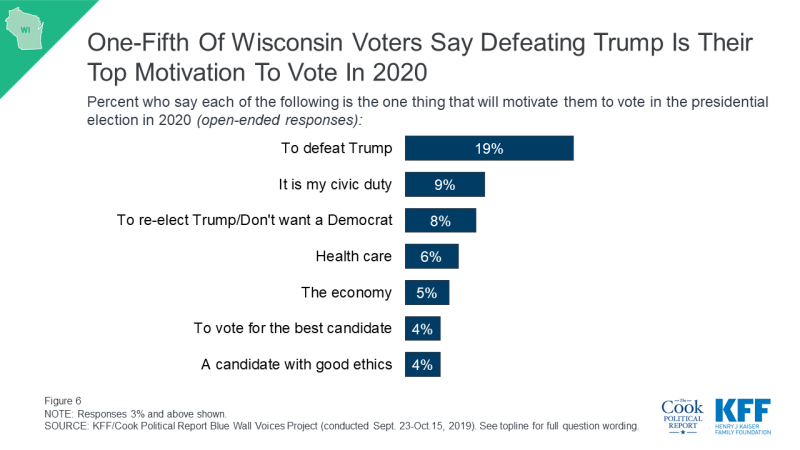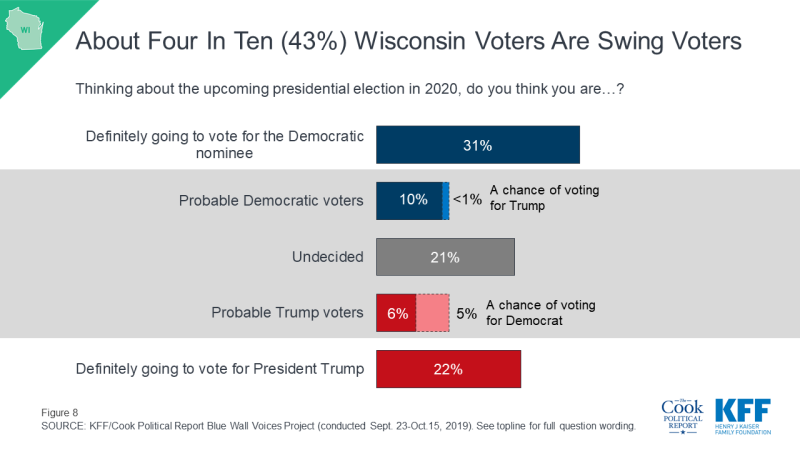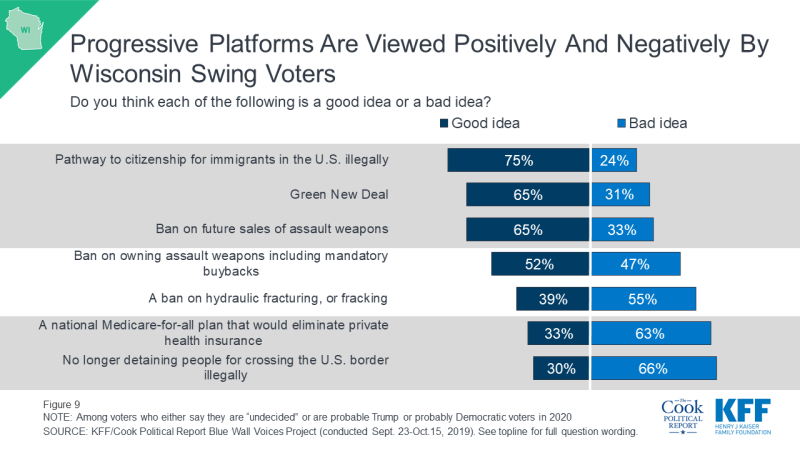Blue Wall Voices Project
Wisconsin
The Blue Wall Voices Project examines voters in Wisconsin, a state that President Trump won by less than one percentage point over Democratic candidate Hillary Clinton in 2016. This poll finds the economy and health care are among the top issues for voters more than one year out from the general election and examines enthusiasm and vote choice leading up to the 2020 presidential election.
With approximately one year before the 2020 presidential election, the economy (22%) and health care (20%) emerge as the top issues for Wisconsin voters. Smaller shares name climate change (16%), gun policy (11%), foreign policy or national security (11%) and immigration (9%) as the issue which will be most important in deciding their vote. However, there are notable partisan differences on which issues are most important in deciding their vote. Among Democrats, climate change emerges as a top issue with nearly three in ten (29%) saying it will be the most important issue in deciding their vote, while among Republicans, only 2% say climate change is the most important issue. Nearly three in ten Republicans (29%) say the economy is the most important issue, compared to 22% of independents and 12% of Democrats. Larger shares of Democratic voters and independent voters say health care is the most important issue in deciding their vote (25% and 21%, respectively) than Republican voters (13%).
While Wisconsin voters are evenly divided in their views of how President Trump is handling the economy (50% v. 50%), a larger share of Wisconsin voters give President Trump negative marks on all other issues included in this poll including foreign policy (60%), health care (58%), immigration (58%), and international trade (57%).
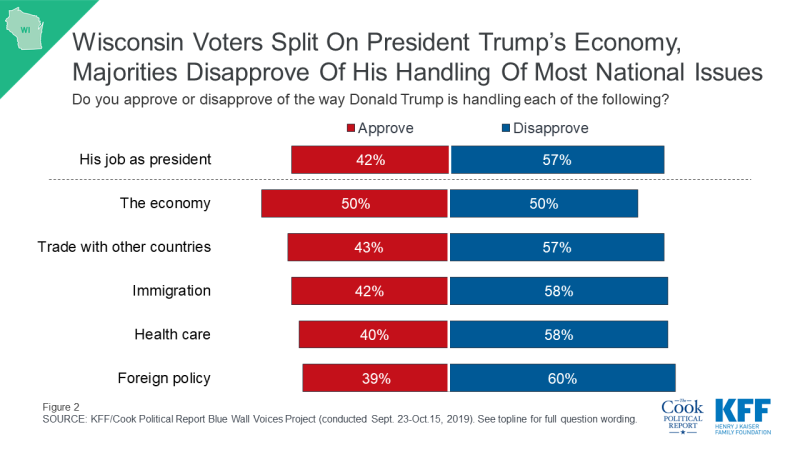
Figure 2: Wisconsin Voters Split On President Trump’s Economy, Majorities Disapprove Of His Handling Of Most National Issues
Wisconsin Voters’ Views of Health Care Priorities
When asked about specific health care priorities for Congress to work on next year, nearly seven in ten Wisconsin voters say lowering prescription drug costs (69%) and maintaining protections for people with pre-existing conditions (66%) should be “a top priority.” Majorities of Democrats (79%), independents (70%), and Republicans (59%) say lowering prescription drug costs should be a top priority for Congress. A majority of Republicans (57%) say repealing and replacing the ACA should be a top priority while a smaller share (46%) say maintaining protections for people with pre-existing conditions should be a top priority for Congress. With discussions about Medicare-for-all dominating the health care conversation in the recent Democratic primary debates, equal shares of Wisconsin Democratic voters say implementing a national Medicare-for-all plan and implementing a public option should be a top priority for Congress next year (43% each), mirroring the policy divide on this issue among the leading Democratic candidates.
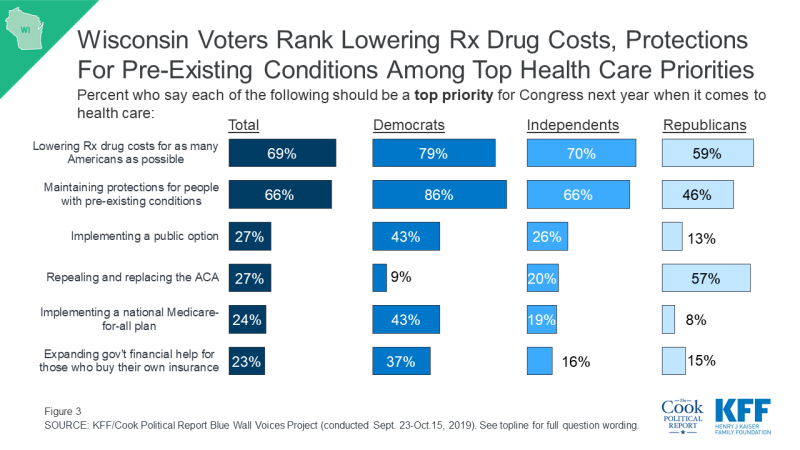
Figure 3: Wisconsin Voters Rank Lowering Rx Drug Costs, Protections For Pre-Existing Conditions Among Top Health Care Priorities
The Economy
Wisconsin voters are divided in their economic outlook for the country in the next 12 months. About half (51%) think the U.S. will have “bad times” financially in the next year while 47% expect “good times.” There is a stark partisan divide with eight in ten Democrats expecting bad economic times in the next year, whereas three in four Republicans (77%) expect good times financially for the country. Similar shares of independent voters expect bad economic times (52%) and good times financially (46%).
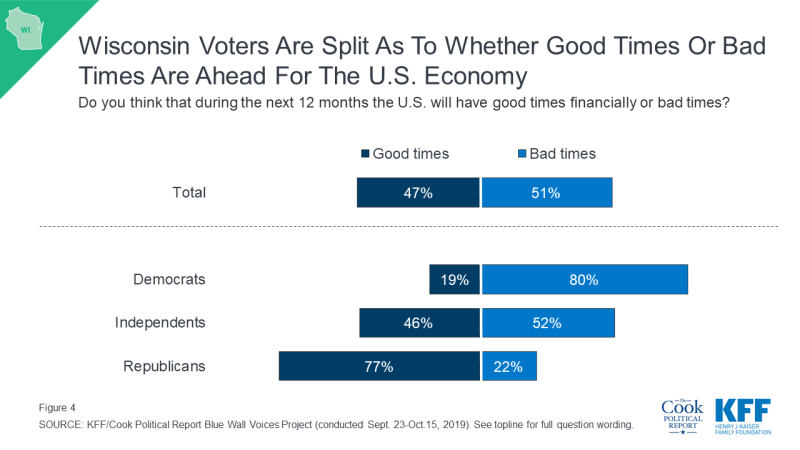
Figure 4: Wisconsin Voters Are Split As To Whether Good Times Or Bad Times Are Ahead For The U.S. Economy
The Democratic Primary in Wisconsin and Preview of the General Election
About half of Wisconsin voters (51%) say they are more motivated to vote in 2020 than they were in the 2016 presidential election. Democrats seem to have the edge when it comes to motivation with more than six in ten Democrats (62%) saying they are “more motivated” to vote in 2020 than they were last election compared to less than half of Republicans (46%) who say they are more motivated.
When asked specifically what one thing will motivate them to vote in the 2020 election, the most frequently volunteered response was defeating President Trump (19%). Smaller shares cited reasons such as a sense of civic duty (9%), re-electing President Trump or not wanting to elect a Democrat (8%), health care (6%), the economy (5%), and to vote for the best candidate (4%) or a candidate with good ethics (4%).
With about five months before Wisconsin’s 2020 primary election, about one in five Democratic voters say Senator Warren (22%) and Vice President Biden (17%) are who they plan to support during the Democratic primary. Vermont Senator Bernie Sanders, who won the Wisconsin primary in 2016 when he challenged former Senator Hillary Clinton for the nomination, is currently garnering 10%. Notably, about four in ten (41%) Wisconsin Democratic primary voters select Senator Warren as their first or second choice compared to one in four Democratic primary voters who select Vice President Joe Biden as their first or second choice while one in five (21%) say Senator Sanders is their first or second choice.
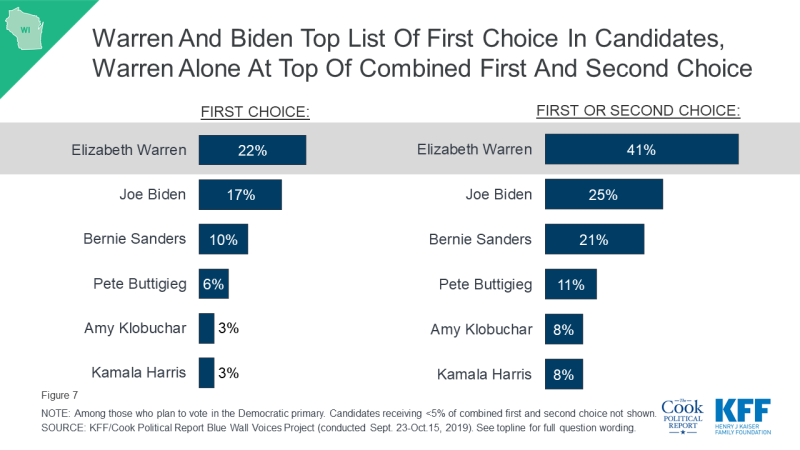
Figure 7: Warren And Biden Top List Of First Choice In Candidates, Warren Alone At Top Of Combined First And Second Choice
About four in ten (43%) Wisconsin voters are either undecided (21%) about their 2020 vote choice or say they are “probably” voting for either President Trump (11%) or the Democratic nominee (10%) but have not made up their minds yet. About three in ten voters say they are “definitely voting” for the Democratic nominee (31%) and about one in five say they are “definitely voting” for President Trump (22%).
Majorities of Wisconsin swing voters (those who are either undecided or say they are probably going to vote for either president Trump or the Democratic nominee) say many of the progressive platforms are “good ideas” including a pathway to citizenship for immigrants in the U.S. illegally (75%), a Green New Deal (65%), and a ban on future sales of assault weapons (65%). But most Wisconsin swing voters say a ban on fracking (55%), a national Medicare-for-all plan (63%), and stopping detainments at the U.S. border (66%) are bad ideas.

